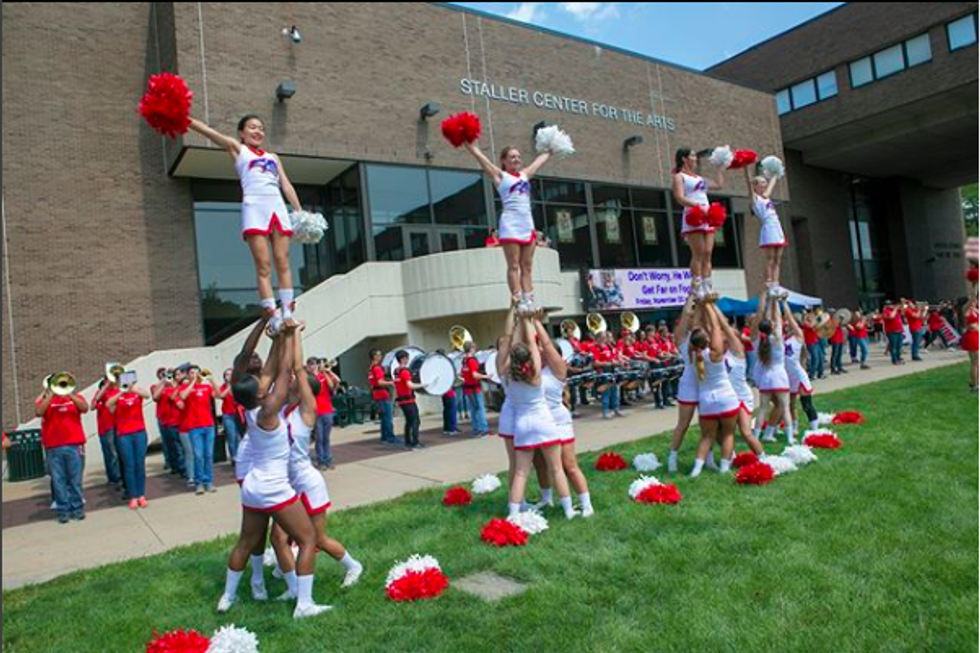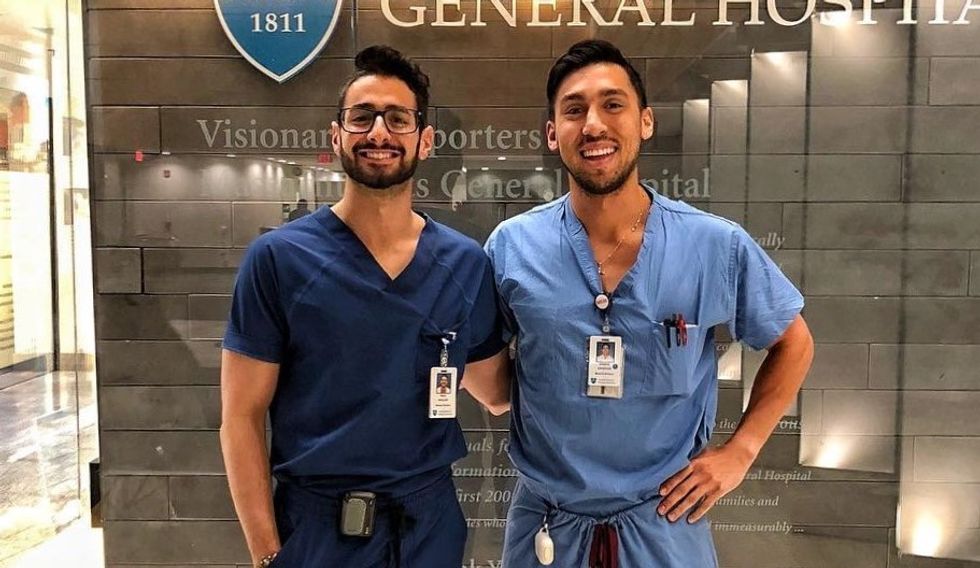I think the majority of people would agree that being on the pre-med track in college is very challenging. Every time someone hears that I am a biochemistry major on the pre-med track, their eyes widen and only one thing comes out of their mouths: "I'm sorry."
Medical schools are rough with their application process so it's no wonder why students are always stressed and try to do everything they can to liven up their resumes and prepare for the MCAT, resulting in social suicide in college. There is just never enough time in the day to do the things you desire and attend all classes, study, and complete all of the assignments. Here is a little list of things you should do as an undergraduate pre-med student to stay on task and be a successful applicant.
1. Study hard
Everybody knows that med schools prefer 4.0 GPAs and that you basically cannot get below an A- in any of your classes if you want to succeed. Although this is true, you can still allow a little room for mistakes—ones you can crawl back from. It's alright to do poorly on a quiz or two but don't make it a habit. Study hard and study every day. Come up with strategies that work best for you such as index cards or outlines. No one will cut you slack, especially in those tough biology and chemistry courses—so do what you have to do to be the best version of yourself every day.
2. Go to office hours

I'm sure you've heard this a million times (because I sure have) but that's only because this is truly important. Professors have office hours for a reason—they are there to answer all of your questions, but most importantly to get to know you better. When senior year comes around, who do you think will write the most relevant recommendation letters? The best one will most likely come from that one biochemistry professor who has established extraordinary research, written a book or two, and maybe even taught at a med school before. You want to be recognized by THAT professor, and not just as a student who took the course and got an A.
3. Do research

Experience is key in medicine. Not only is research good for your personal knowledge but having your name out there will give you a better shot in future research positions that may relate more to your exact career. This is where professors' office hours come in handy, too—don't be afraid to ask them if they have room in their lab once you get to know them. Don't be afraid to search through the database of the professors at your school and find the ones whose research you genuinely like. Email them and let them know you're interested because it's very rare that a position will randomly be offered TO you. Most importantly, don't be afraid of rejection; keep trying.
4. Get involved

Getting involved on campus will alleviate your stress, help you find new friends, and allow you to make many connections. Surely, your campus has medical-related clubs and organizations—go out to a few of their general body meetings! You can learn a lot about careers in medicine, volunteer at different places, and maybe even get clinical hours. However, also try to join clubs that have nothing to do with medicine; you need to let loose and just have a good time making friendship bracelets or playing volleyball.
5. Read books
You want to be a sophisticated, intelligent, and empathetic applicant when applying to medical schools. Your vocabulary and memory will improve and expand with more reading, correlating to better writing skills and concentration. Writing those personal essays, resumes, and attending interviews will come with ease if you're constantly improving yourself by reading books, whether they are scientific or are romcoms.
6. Watch lectures/TED Talks
Same point as reading, except you're getting knowledge on interesting topics that will help you in your career and are getting to know people who are famous in the science world.
7. Get certified
Take an EMT class, become CPR or CPT certified—it will help you in your future career in medicine and will look good on applications! Try to find opportunities on campus where these things will get provided for free.
8. Go to advising

Make use of the staff on campus—they're here to help you. If you aren't certain what course you should take next or how to go about your minor, or anything else related to your pre-med track, go to your advisor. Sometimes it's nice and less stressful to have a conversation with somebody who doesn't have anything to do with your grades.
9. Know the MCAT
One of the most important tests in your life, the one that decides your future in medicine—nothing to stress about, right? People go about studying for the MCAT in different ways but I personally think that somewhere in your sophomore year you should begin reviewing your notes from previous biology and chemistry classes. Don't leave all of the studying for the week before your exam; this isn't just another bio exam. Additionally, know exactly what will be on the test—the number of questions, the type of questions, and the amount of time you need to spend on each one. Take as many practice tests as you can in a test environment—keep preparing until you're nauseous.
10. Cry it out

Breakdowns are okay. No one said being pre-med is easy. It's stressful and requires a lot out of you, so if you cannot contain all of your hatred towards that organic chemistry class, cry it out. If you are overwhelmed by all of the studying, cry it out. If you're just having a bad day because your poli sci friends are hanging out without you, cry it out.
11. Have a backup plan
If we're being honest, less than half of medical school applicants actually get into medical school. It's one of the most competitive fields and even if you're really good, there will always be better—not necessarily more intelligent—but somebody with more lab experience, a better story, a higher MCAT score, etc. Don't give up on your dreams but do have a backup job/career that you're interested in. Make sure you can fall back on your major and do something with it if med school doesn't work out.

















